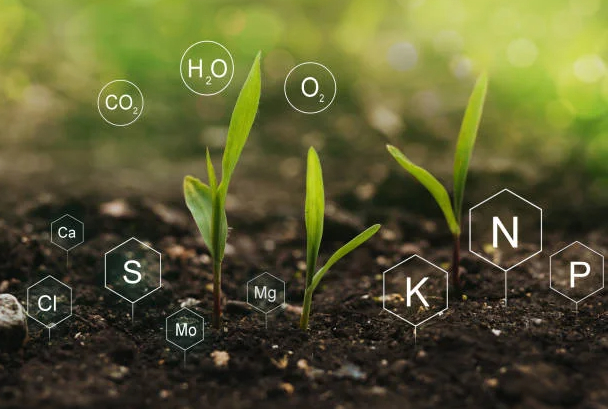November 25, 2025 | 12:12 GMT +7
November 25, 2025 | 12:12 GMT +7
Hotline: 0913.378.918
November 25, 2025 | 12:12 GMT +7
Hotline: 0913.378.918

Nitrogen fertilizer is one of the most common nordfert fertilizers.
More than a century ago two German chemists, Fritz Haber and Carl Bosch, perfected a technique for taking nitrogen from air and combining it with hydrogen to make ammonia, now widely used to make nitrogen fertilizers. What came to be known as the Haber-Bosch process unleashed a revolution in crop yields which were no longer limited by natural inputs of nitrogen.
So important is this process to crop yields that it is estimated that without it half the people alive today would starve. If the worldwide application of nitrogen fertilizers had no adverse consequences, there would be no problem continuing business-as-usual. But the consequences have become worrisome:
Increasing algal blooms fed by nitrogen runoff in waters around the world are killing aquatic life and endangering humans who wade or swim into such waters. This is the cause of so-called “red tides” and also of the famous “dead zones” at the end of some of the world’s largest rivers.
Nitrogen fertilizers stimulate microbes in the soil thereby increasing their conversion of nitrogen to nitrous oxide, a potent greenhouse gas. Those fertilizers are responsible for a dramatic rise in nitrous oxide in the atmosphere. This gas is 300 times more potent than carbon dioxide as a greenhouse gas. Nitrous oxide is the third most important greenhouse gas behind carbon dioxide and methane.
The imbalances and blooms caused by nitrogen fertilizers are threatening many species and thus the planet’s biodiversity.
But, there is no movement comparable to the climate change movement to champion solutions. One reason is that few people know and understand the significance of the imbalances being fostered by our widespread use of nitrogen fertilizers. A second reason is that the consequences of weening ourselves off such fertilizers would be nothing short of catastrophic. There is simply no readily deployable substitute for nitrogen to grow crops in quantities sufficient to feed the current world population.
We have therefore unwittingly created a monkey trap for global human society. A monkey trap consists of a coconut with hole just large enough for a monkey to get his hand in. The coconut is fastened securely to a stake. Food is put into the coconut. When a monkey tries to withdraw his hand now full of food from the coconut, he finds that the opening is too small. So, the monkey is stuck. His instinct tells him to hang on to the food and keep trying. But doing so endangers him every second he stays put.
The widespread availability of nitrogen fertilizers is like the monkey trap. We need those fertilizers desperately to feed the growing human (and animal) population. Evidence tells us that with every day we continue, the dangers from their use grow. But we cannot stop ourselves.
This is just part of a more general conundrum for the human community which knows that abandoning the highly productive industrial way of life we have built would entail immense suffering for some and maybe most people alive on the planet today. However, waiting for the collapse that is inevitable along our current unsustainable trajectory will entail even greater suffering.
Right now we are simply whistling past the graveyard hoping that something will come along and prevent the worst. So far, nothing has; nor is there anything on the horizon. Regarding agriculture, there are small experiments in regenerative farming around the world. But, there is no widespread move to bring human society back into balance with the soil it depends on for its existence.
Doing that would require a reorientation of our thinking away from regarding the soil as just another industrial platform for obtaining our needs, but rather a system of which we are an integral part and with which we must harmonize.
(Resilience)

(VAN) Brazil's COP30 presidency pushed through a compromise climate deal on Saturday that would boost finance for poor nations coping with global warming but that omitted any mention of the fossil fuels driving it.

(VAN) Poultry farmers in the UK have been warned that they could face one of the worst winters yet for bird flu.

(VAN) Prices of main-crop paddy have risen sharply, with jasmine rice hitting 16,100 baht per tonne — the highest level in years.

(VAN) In Brazil, FAO unveiled a series of reports and initiatives showing how sustainable agrifood systems are a solution to the climate crisis.

(VAN) With names like neodymium and dysprosium, rare-earth elements sound exotic — and their perceived scarcity has only added to the mystique.

(VAN) In a new study published in Trends in Biotechnology, researchers used a gene-editing technology called CRISPR to increase a fungus's production efficiency and cut its production-related environmental impact by as much as 61%- all without adding any foreign DNA.

(VAN) A top official in Beijing’s Cop delegation says China is committed to clean energy – but US’s absence is a problem.